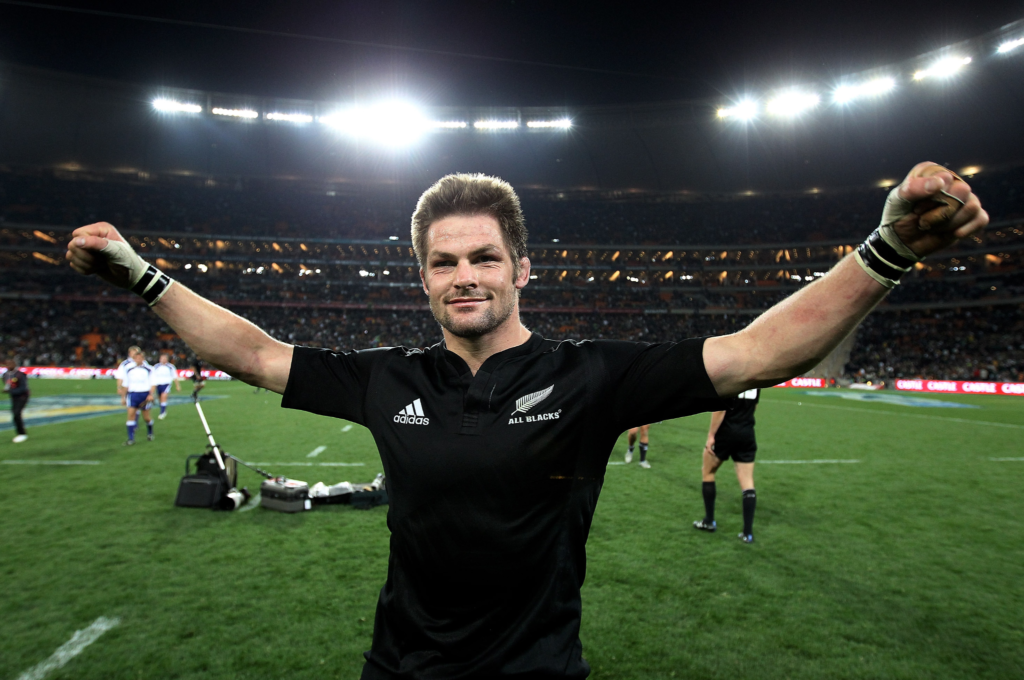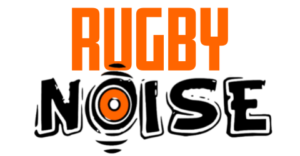Like most professional team sports, rugby requires input from all players in a team to guarantee victory. Any fan worth their salt would however agree that any team is only as great as the sum total of its part and as weak as its weakest link. In the century and a half or so that rugby has officially existed as a sport, there have been a few elite players who have mastered the intricacies of the sport and reduced the art of winning down to a science that they have practiced with ruthless efficiency to earn numerous team and personal accolades. One player from this exclusive group stands heads and shoulders above his peers and is the embodiment of excellence and success.
Who is the most decorated rugby player of all time? Former All Blacks captain Richie McCaw is the most decorated rugby player of all time. The ex-flanker has two Rugby World Cup titles, three World Rugby player of the year trophies, four Super Rugby titles, a World Rugby player of the decade honor, and a New Zealand sportsman of the decade award to his name. McCaw is also the first player in rugby union history to win 100 tests and to accrue 100 caps as captain, truly putting him in a class of his own.

Introduction to Rugby and Early Career
McCaw was born in Oamaru on New Year’s Eve in 1980 and got his first introduction to rugby when he joined local side Kurow rugby club. Unlike many of his peers, his passion for the sport was not evident from a young age and he much preferred flying gliders with his grandfather who was a decorated pilot in the Second World War.
His undeniable talent for rugby first became evident when he joined Otago Boys’ High School where he quickly developed into one of the best players at the school and became a mainstay of their senior 15s team. McCaw’s natural leadership qualities also became evident with his appointment as head boy.
Despite being a standout in the high school circuit, McCaw failed to earn a spot in New Zealand’s joint secondary school team. He nevertheless took the temporary setback in stride and continued to hone his skills into his college years at Christchurch’s Lincoln University where he established himself as one of the top prospects in the country at the time.
Sensing that his time had arrived, McCaw stopped just two credits shy of completing his Bachelor of Agricultural Science degree to focus on his rugby career. His gamble ultimately paid off after he was selected to New Zealand’s under-19 squad in 1999 by former coach Mark Shaw.
Becoming an All Black
The 1999 under-19 side lived up to its potential by winning the World Championship in Wales – a development that would earn McCaw a selection to New Zealand’s under-21 side in 2000, which he would ultimately captain.
The same year also saw McCaw make his debut for Canterbury in the National Provincial Championship (NPC). The World Rugby Hall of Famer quickly showed so much promise that former All-Black coach John Mitchell called him up for their 2001 end-of-year tour to Scotland, Ireland, and Argentina after only 17 matches.
Though the selection of the then 20-year-old McCaw was initially met with criticism from some quarters, the talisman quickly silenced his detractors by inspiring New Zealand to a comeback victory against Ireland in his debut international test.
New Zealand had trailed the match 16-7 at the half before their young core that consisted of the likes of McCaw and legendary former winger Jonah Lomu made a spirited push in the second half to end the match 40-29.
McCaw earned man of the match honors and played the remaining two tests of the tour against Scotland and Argentina, which New Zealand won. His maiden season with the senior All Blacks squad ended on a high as he was named both NPC Division One and New Zealand Rugby Football Union under-21 Player of the Year.
Crowning Moments
From 2002, McCaw became a regular in the All Blacks squad and played in six international tests that year. New Zealand won five of the six tests losing only to Australia winning the prestigious Tri-Nations title in the process. The openside flanker had a breakout year and earned the International Rugby Players Association Newcomer of the Year award.
2003 proved to be an even more successful year for McCaw and the All Blacks as they defended their Tri-Nations trophy and won the Bledisloe Cup which had eluded them since 1997. For his efforts that season, McCaw was named New Zealand Rugby Union player of the year and awarded the Kel Tremain trophy.
Their 2004 season saw the All Blacks part ways with ex-coach John Mitchell and bring on a new one in Graham Henry. The new boss retained McCaw as his first-choice open flanker and appointed him vice-captain. The workhorse suffered a concussion on three separate occasions during the time which limited him for most of 2004 and 2005.
Upon resuming action in May 2006, McCaw was named captain of the All Blacks aged 25 ahead of his 37th international test match. His first season in charge ended on a high note as New Zealand retained both their Tri-Nations and Bledisloe Cup titles. His efforts won him the 2006 IRB International Player of the year award.
More success followed in 2007 as New Zealand held on to both the Tri-Nations and Bledisloe Cup for the second consecutive year. 2008 became arguably the best year in McCaw’s career as he led the All Blacks to 13 wins in 15 tests and the No. 1 ranking in the world with the Tri-Nations, Bledisloe Cup, and Grand Slam honors as the cherry on top.
Despite a pair of challenging seasons for the All Blacks in 2009 and 2010, McCaw remained the silver lining and earned back-to-back IRB International Player of the Year awards. He climbed the mountain top when he captained the All Blacks to two consecutive World Cups in 2011 and 2015.
His spectacular performance in 2011 earned him a spot on the RWC Dream Team and the New Zealand sportsperson of the year award. McCaw became the most capped rugby union player in August 2015 after breaking Brian O’Driscoll’s world record of 141 caps and held on to the record until October 2020.
Life After Rugby
McCaw retired from rugby in November 2015. His career came full circle when he was inducted into the World Rugby Hall of Fame in 2019. His former teammates and peers (including his competitors) have lauded him as one of if not the best openside flankers of all time.
The 2016 Order of New Zealand honoree remains active in rugby circles for his country and recently took up a senior position in the All Blacks management team where he uses his experience to inspire and groom the next generations of players.
